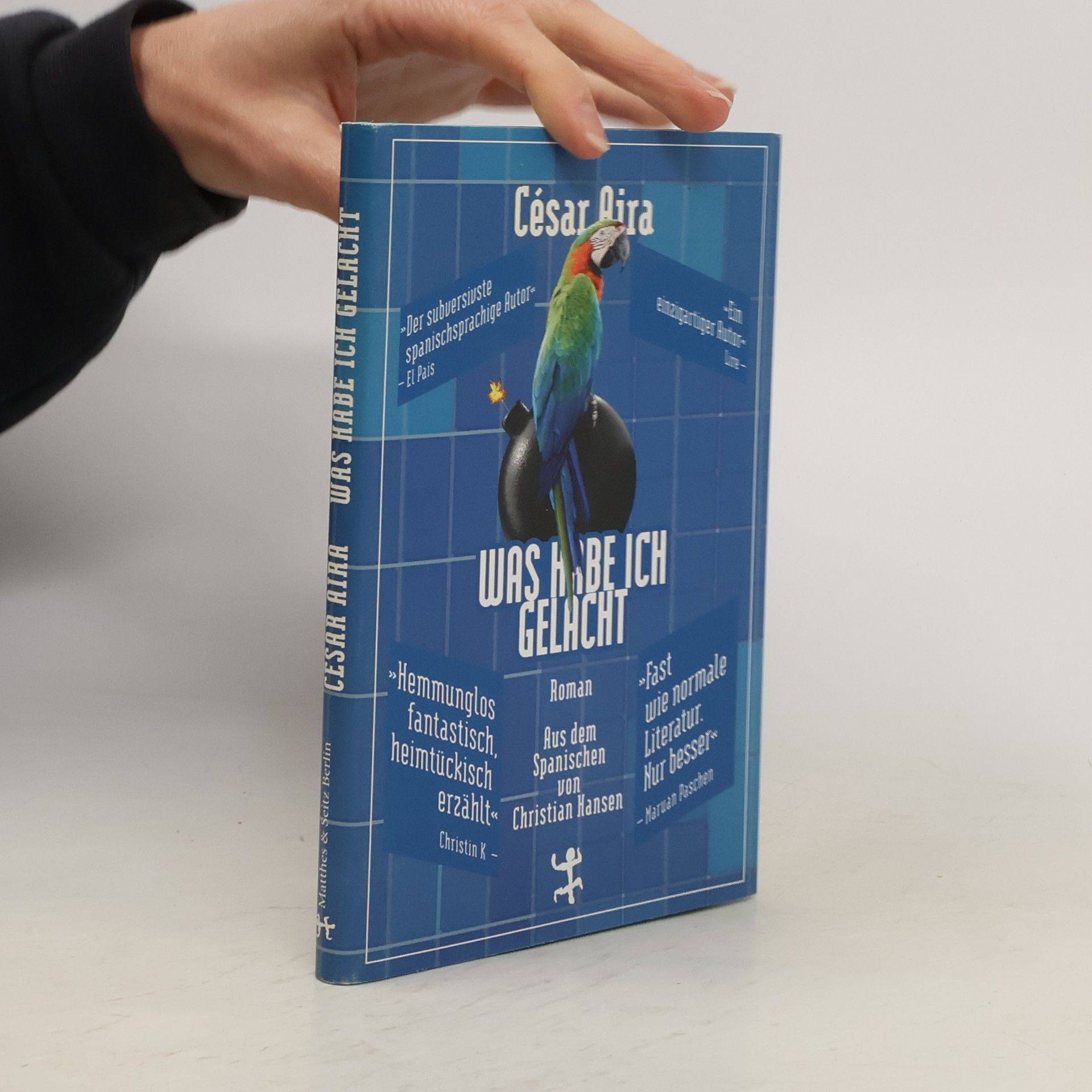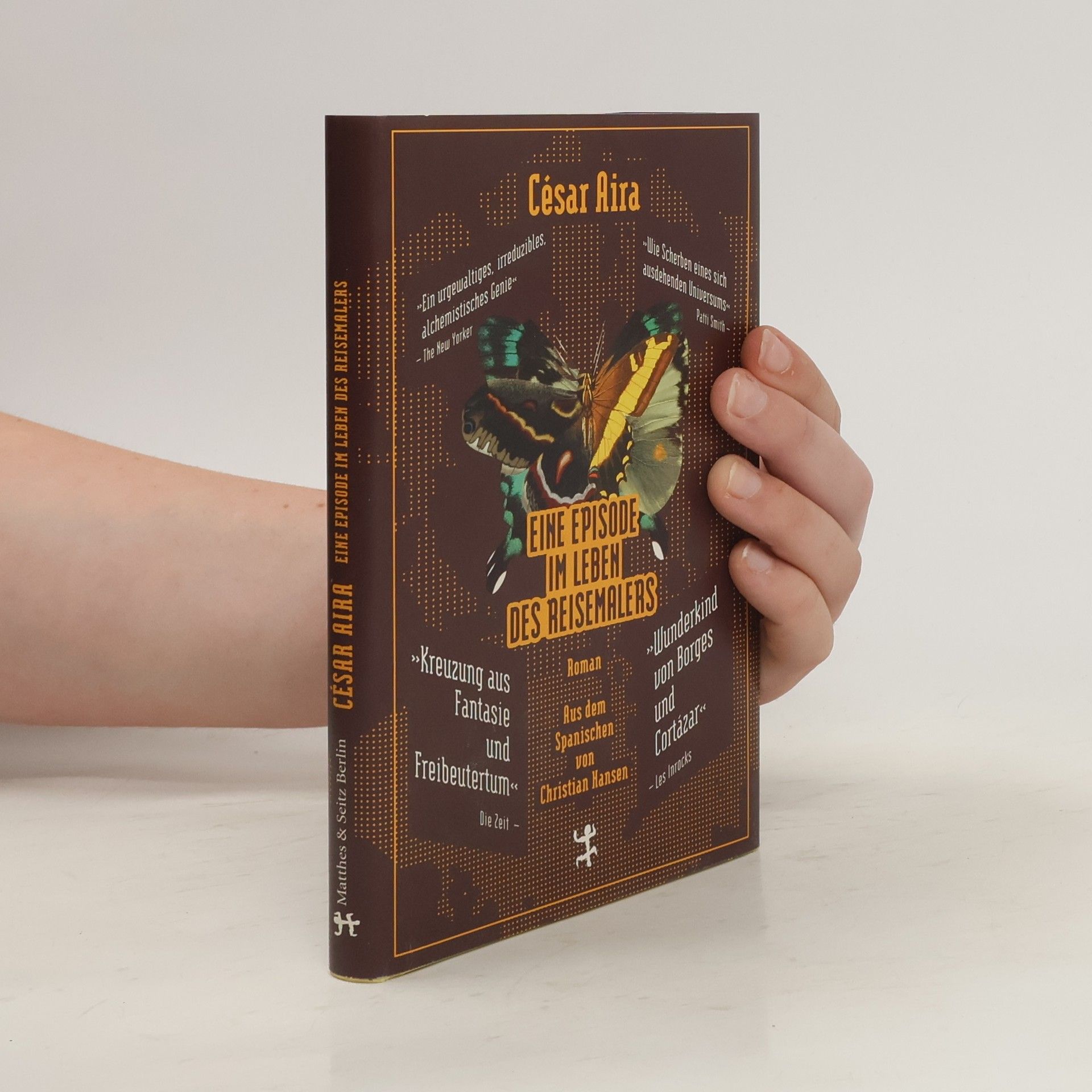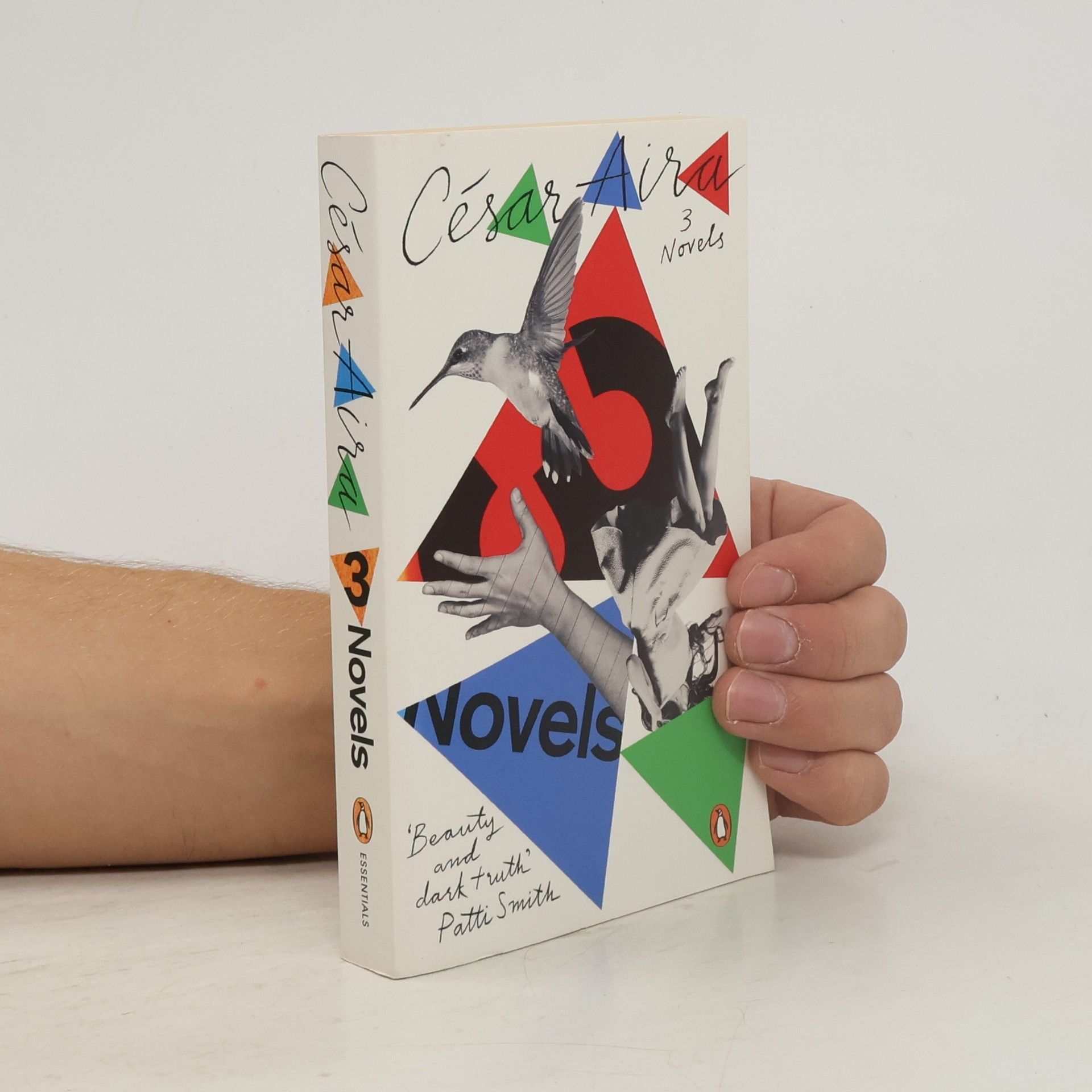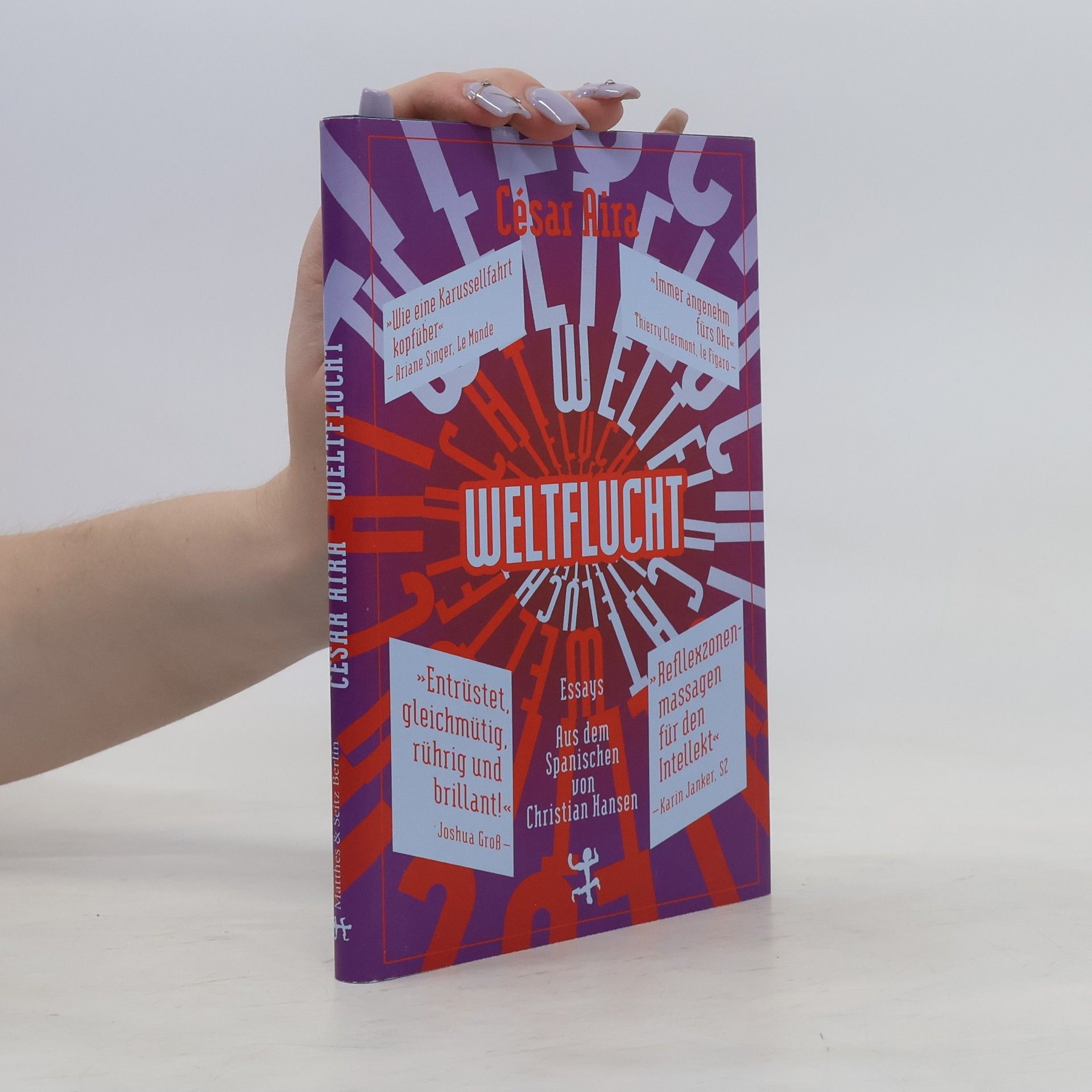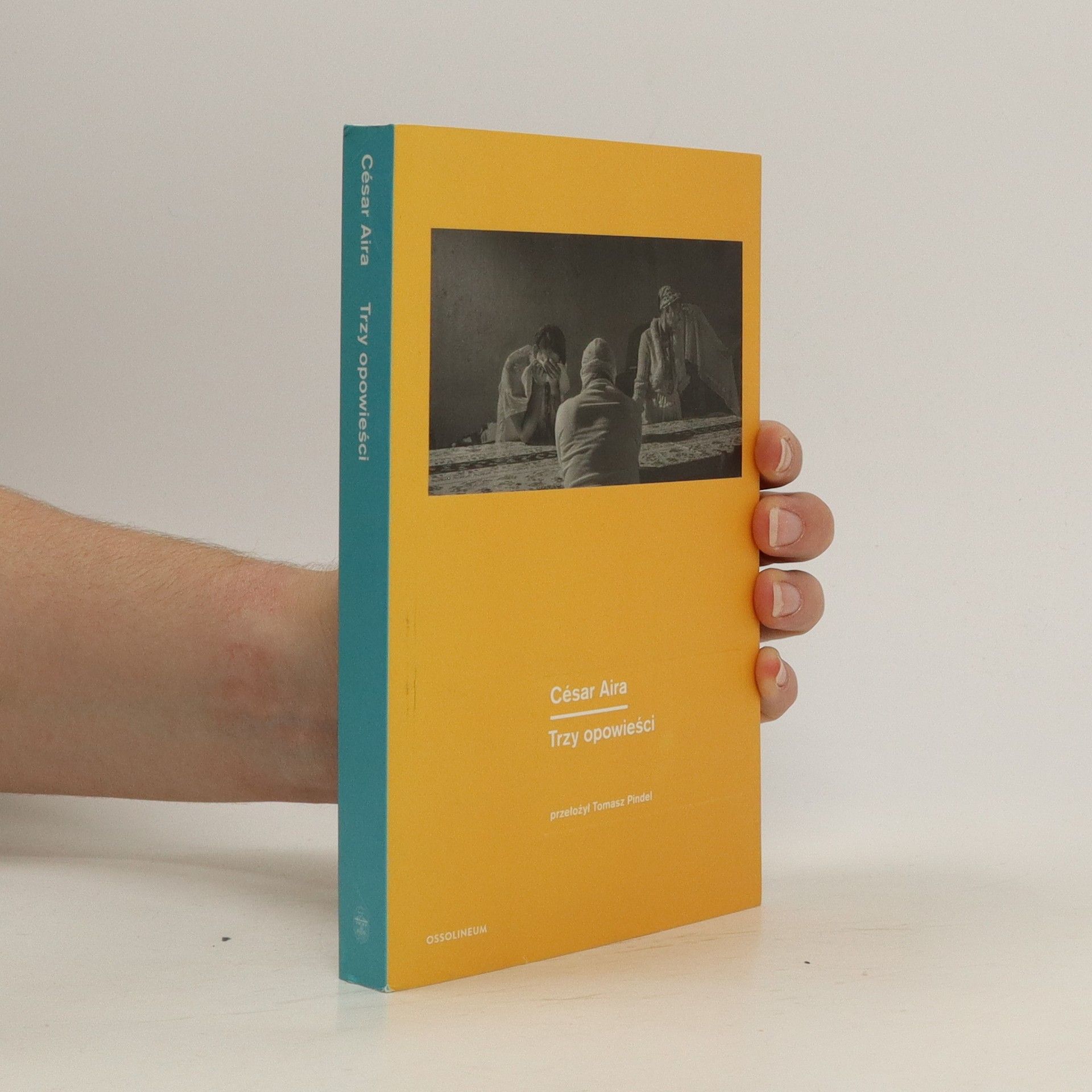Weltflucht
Essays
Wie haben sich das Schreiben und die Literatur im Wandel der Zeit verändert, geht es allen zu gut, um noch wirklich interessante Literatur zu schreiben? Sind Lesende die klügeren Menschen und sollten wir uns alle ein Beispiel an Dalí nehmen, der frei heraus bezeugte, er sei ein Genie? Diesen Fragen und vielen mehr folgt César Aira mit seinen fünf Essays, in denen er über die Literatur mit dem Zweck der Weltflucht reflektiert, darüber, was ihn an der Schreibmethode Roussels so fasziniert und weshalb es manchmal gut ist, nicht auf jede Frage direkt die Antwort im Internet zu finden. Dabei transponiert Aira auf seine verquere, philosophisch verminte sowie aberwitzige und tiefgründige Art das autobiografische Schreiben auf das Feld des Essays, wirft Fragen auf, die keine Antworten finden, und schreibt von einem Ich, ohne Persönliches preiszugeben. Und wenn er sogar das Genre des Essays selbst infrage stellt, macht Aira seinem Ruf alle Ehre.
